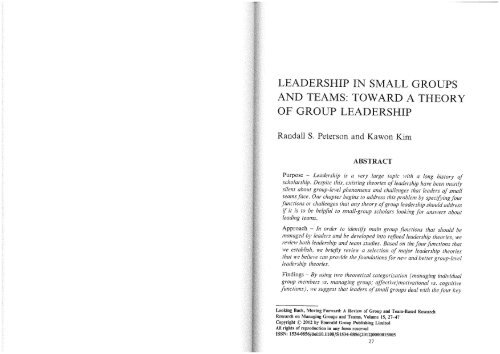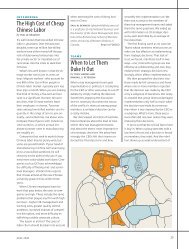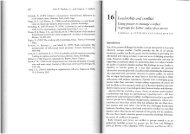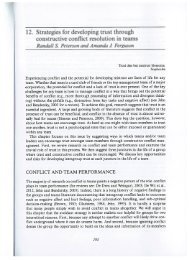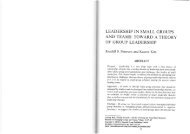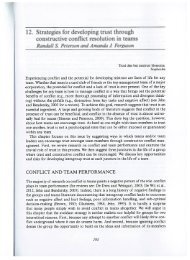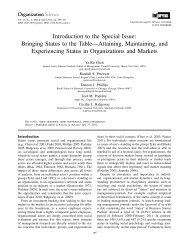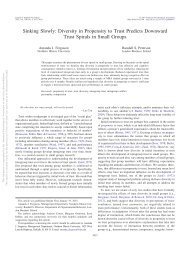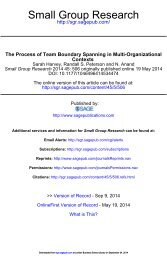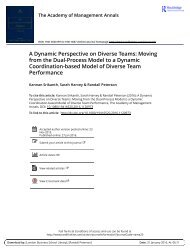Leadership in small groups and teams: Toward a theory of group leadership
Purpose – Leadership is a very large topic with a long history of scholarship. Despite this, existing theories of leadership have been mostly silent about group-level phenomena and challenges that leaders of small teams face. Our chapter begins to address this problem by specifying four functions or challenges that any theory of group leadership should address if it is to be helpful to small-group scholars looking for answers about leading teams. Approach – In order to identify main group functions that should be managed by leaders and be developed into refined leadership theories, we review both leadership and team studies. Based on the four functions that we establish, we briefly review a selection of major leadership theories that we believe can provide the foundations for new and better group-level leadership theories. Findings – By using two theoretical categorization (managing individual group members vs. managing group; affective/motivational vs. cognitive functions), we suggest that leaders of small groups deal with the four key leadership functions – (1) managing within-group interpersonal dynamics, (2) within-group coordination of information/resources, (3) group-level affect management, and (4) managing group boundaries for information/resources flow and group identity. Value – This chapter provides specific group functions that groups and teams scholars can use as a foundation to develop better theory of small-group leadership. - In M. Neale and E. A. Mannix (Eds), Looking Back, Moving Forward: A Review of Group and Team-Based Research. In the series: Research on Managing Groups and Teams, Emerald Publishing, 2012
Purpose – Leadership is a very large topic with a long history of scholarship. Despite this, existing theories of leadership have been mostly silent about group-level phenomena and challenges that leaders of small teams face. Our chapter begins to address this problem by specifying four functions or challenges that any theory of group leadership should address if it is to be helpful to small-group scholars looking for answers about leading teams.
Approach – In order to identify main group functions that should be managed by leaders and be developed into refined leadership theories, we review both leadership and team studies. Based on the four functions that we establish, we briefly review a selection of major leadership theories that we believe can provide the foundations for new and better group-level leadership theories.
Findings – By using two theoretical categorization (managing individual group members vs. managing group; affective/motivational vs. cognitive functions), we suggest that leaders of small groups deal with the four key leadership functions – (1) managing within-group interpersonal dynamics, (2) within-group coordination of information/resources, (3) group-level affect management, and (4) managing group boundaries for information/resources flow and group identity.
Value – This chapter provides specific group functions that groups and teams scholars can use as a foundation to develop better theory of small-group leadership. - In M. Neale and E. A. Mannix (Eds), Looking Back, Moving Forward: A Review of Group and Team-Based Research. In the series: Research on Managing Groups and Teams, Emerald Publishing, 2012
- TAGS
- research
- teams
- groups
- leadership
You also want an ePaper? Increase the reach of your titles
YUMPU automatically turns print PDFs into web optimized ePapers that Google loves.


